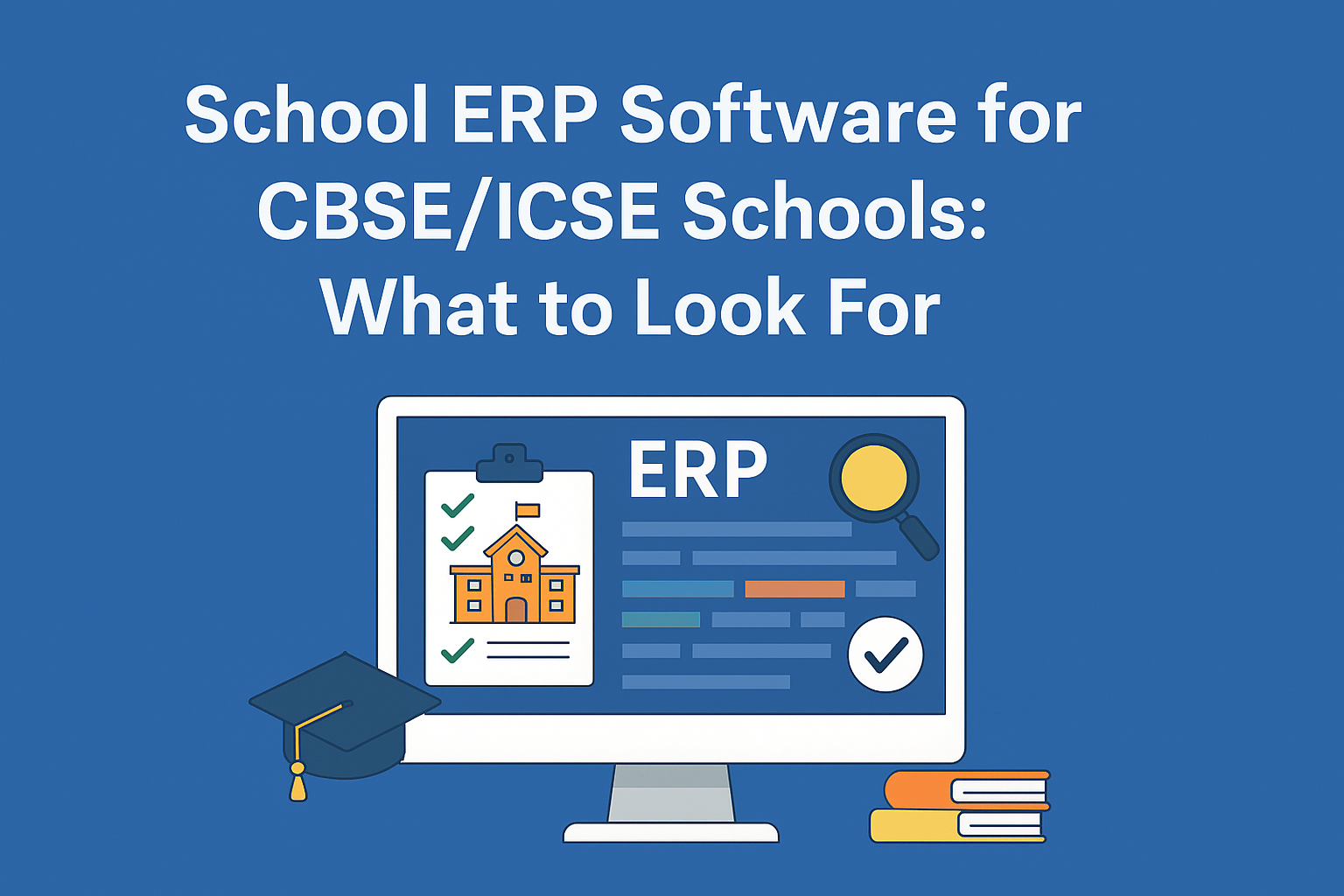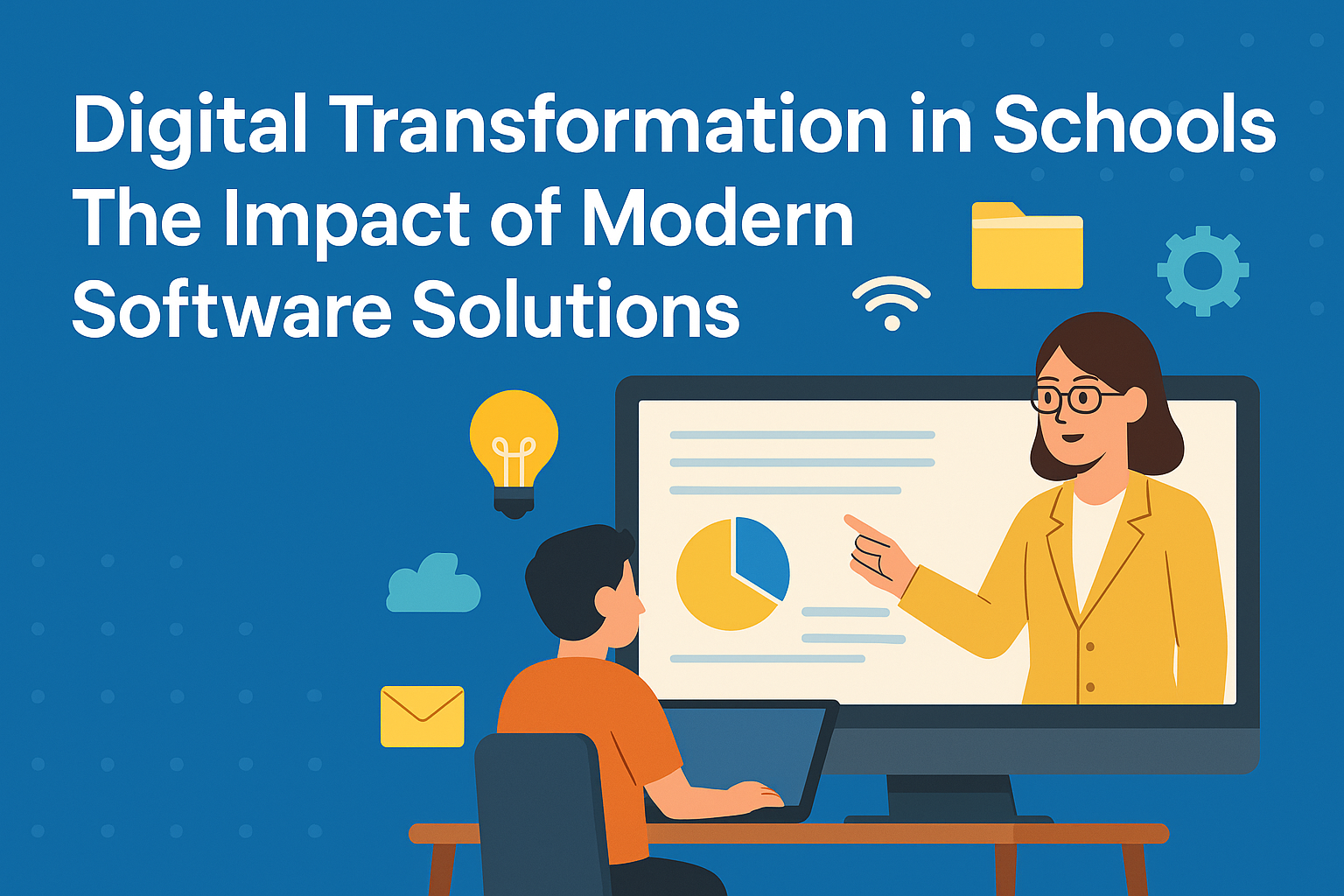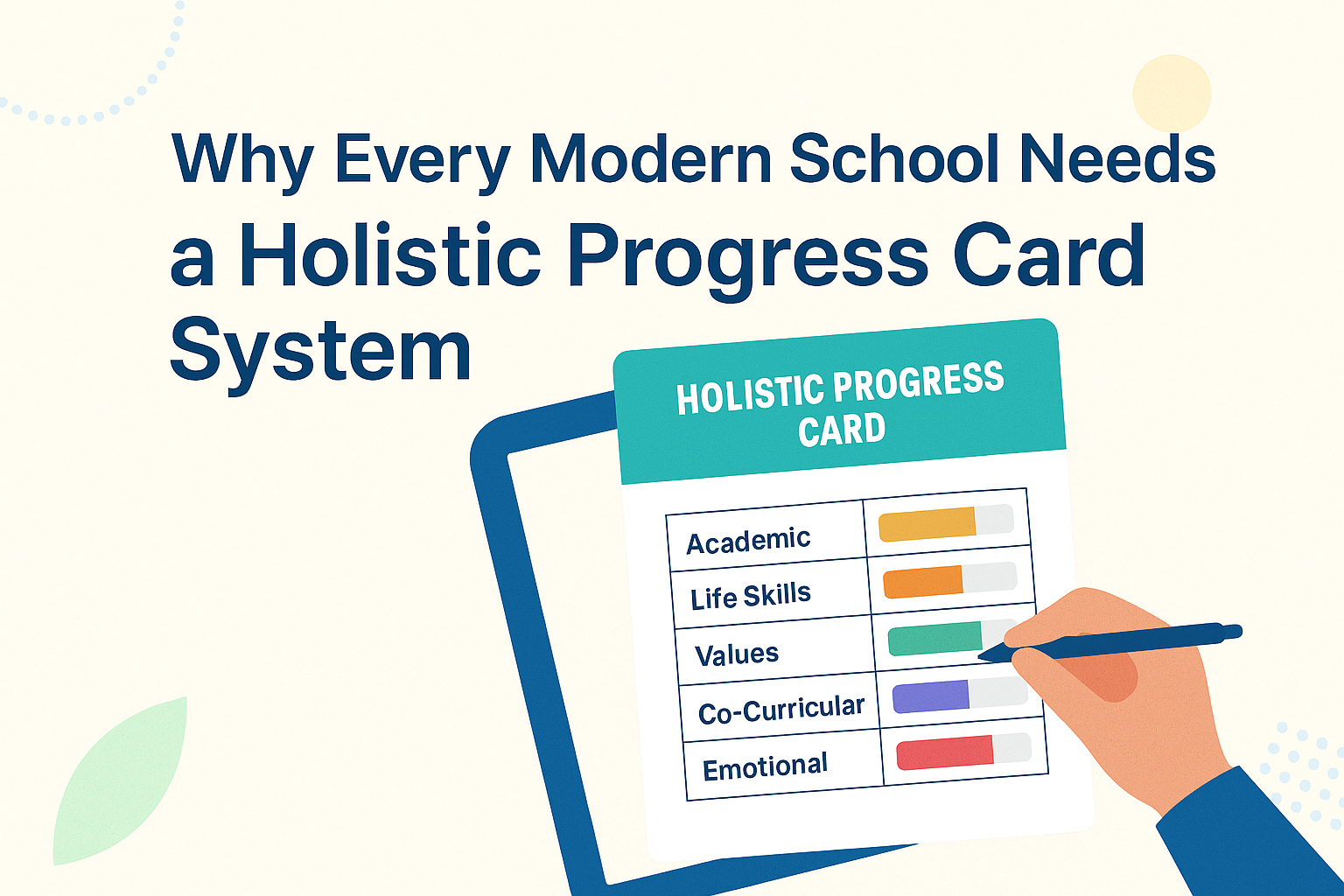School ERP Software for CBSE/ICSE Schools: What to Look For

Strong 8k brings an ultra-HD IPTV experience to your living room and your pocket.
In today’s rapidly digitizing educational landscape, CBSE and ICSE schools in India are under growing pressure to manage operations more efficiently while ensuring academic excellence and regulatory compliance. This is where School ERP software becomes essential. But with dozens of vendors claiming to offer “the best solution,” how do you know which ERP system is truly the right fit for your school?
If you’re a school owner managing a CBSE or ICSE institution, this guide will walk you through the specific features, functionalities, and factors you must consider when selecting a School ERP tailored to your school’s unique requirements.
Why CBSE and ICSE Schools Need a Specialized ERP Solution
Unlike international or state board schools, CBSE and ICSE institutions follow specific academic structures, exam patterns, and compliance mandates. Managing these complexities manually or with generic software often leads to inefficiencies, errors, and poor stakeholder communication.
Here’s why a specialized ERP is essential:
Regulatory Alignment: CBSE and ICSE boards have strict guidelines on assessments, attendance, and academic calendars. A suitable ERP must support these formats.
Curriculum Complexity: From co-scholastic evaluations to elective subjects, these schools require customizable academic planning tools.
Parent Involvement: Schools must actively engage parents with real-time updates and insights, especially during board exam years.
A School ERP built specifically for CBSE/ICSE schools understands these nuances and empowers educators and administrators to stay compliant while improving productivity.
Key Features to Look for in School ERP Software for CBSE/ICSE Institutions
1. Academic Management Aligned with Board Standards
Look for an ERP that supports:
CCE and Term-Based Evaluations: The software should include customizable formats for scholastic and co-scholastic grading as required by CBSE/ICSE.
Curriculum Planning: Support for uploading syllabus, lesson plans, and academic calendars in line with board timelines.
Teacher Tools: From digital lesson delivery to performance tracking, teachers should be empowered to manage classes digitally.
2. Examination and Result Management
Efficient exam planning is a hallmark of a good ERP. Must-have features include:
Auto-generated report cards in board-prescribed formats
Marksheets with weighted averages and grade conversions
Online result publishing portals with access control
Analytical tools for performance insights by subject/class
3. Attendance and Leave Management
Daily attendance tracking is critical, especially for board-compliant reporting. The ERP should offer:
Biometric/RFID integration for real-time attendance
Separate modules for student and staff attendance
SMS alerts to parents for absences
Analytics on attendance patterns over time
4. Fees & Finance Management with Custom Structures
CBSE/ICSE schools often have varied fee structures across grades and streams. Your ERP must include:
Flexible fee configuration by term, category, or class
Auto-generation of receipts and due reminders
Online payment integrations (UPI, NetBanking, wallets)
Exportable reports for audit and compliance
5. Communication and Parent Engagement Tools
Modern School ERP software should bridge communication gaps with features like:
Parent, teacher, and student mobile apps
Push notifications for events, circulars, and results
Real-time updates on assignments, attendance, and homework
Feedback systems and online PTMs
6. Transport and Hostel Management
For schools offering residential or transport facilities:
Route planning with GPS tracking
Student check-in/check-out logs for transport
Hostel room allocation and fee tracking
Real-time notifications for parents
Essential Tech Considerations for School Owners
Beyond features, pay attention to the technology stack powering the ERP:
Cloud-Based Architecture: Enables access from anywhere and reduces server maintenance costs.
Mobile-First Design: Ensures stakeholders can access features on smartphones.
Data Security: Encryption, access control, and regular backups are non-negotiable.
Third-Party Integrations: Ability to connect with tools like Tally, Zoom, or biometric devices enhances functionality.
Customization and Scalability
As your school grows, your ERP should grow with it.
Modular Design: Choose only the features you need and expand as required.
Multi-Branch Support: Manage multiple campuses under one platform.
User Role Management: Different dashboards for admins, teachers, students, and parents.
Investing in scalable ERP software ensures you’re not forced to switch systems every few years.
Training, Support, and Vendor Reliability
Even the best ERP software can fail without proper onboarding and support.
Initial Training: Ensure your vendor offers hands-on training for your staff.
Documentation and Videos: Help centers, FAQs, and tutorials reduce dependency.
Customer Support: 24/7 phone/chat/email support is ideal for resolving urgent issues.
Track Record: Check how long the vendor has been serving CBSE/ICSE schools and request references.
Case Study: A Success Story
Consider the example of Aarav International School, a CBSE-affiliated institution in Pune. After adopting a cloud-based ERP, they reduced manual workload by 60%, improved parent communication via app notifications, and gained real-time insights into student performance. The school now manages over 2,000 students across two campuses with a single ERP dashboard.
Red Flags to Avoid When Choosing an ERP
While evaluating ERP vendors, watch out for:
Overly Complex User Interfaces: If it’s hard to use, your staff won’t adopt it.
Lack of Board-Specific Support: Generic ERPs may not support CBSE/ICSE assessments or structures.
Hidden Costs: Ask for transparent pricing with no surprise fees.
Poor Customer Support: Delayed responses during critical school functions can be disastrous.
Final Checklist for School Owners
Before finalizing your ERP, ask:
Does it support CBSE/ICSE-specific report cards and assessments?
Is it cloud-based and accessible on mobile?
Are there real-time communication tools for parents?
Can it manage admissions, fees, exams, and staff workflows?
Is customer support responsive and available during emergencies?
Conclusion
Choosing the right School ERP software for CBSE/ICSE schools isn’t just about digitization—it’s about creating an ecosystem that promotes transparency, efficiency, and better learning outcomes. As a school owner, investing in a reliable, board-compliant ERP system will not only reduce operational headaches but also enhance the educational experience for students, parents, and teachers alike.
Note: IndiBlogHub features both user-submitted and editorial content. We do not verify third-party contributions. Read our Disclaimer and Privacy Policyfor details.







